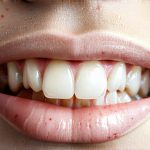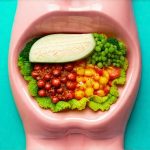Chemotherapy is a powerful treatment for cancer, but it often comes with significant side effects, many of which directly impact appetite and digestion. Nausea, vomiting, changes in taste, diarrhea, constipation, and mouth sores are common experiences that can make eating – already a necessary act – feel like an enormous challenge. Maintaining adequate nutrition during chemotherapy isn’t simply about comfort; it’s vital for supporting the body’s ability to fight cancer, withstand treatment, and recover afterwards. A weakened nutritional state can lead to decreased energy levels, impaired immune function, and even necessitate adjustments or delays in the chemotherapy schedule itself.
The goal is not necessarily to force down large meals if you aren’t feeling up to it, but rather to consistently consume something nourishing throughout the day, even if that “something” seems small. This article will explore practical strategies for navigating these challenges, focusing on dietary adjustments and eating habits that can minimize stomach upset and help maintain strength during this difficult time. It’s important to remember that every individual responds differently to chemotherapy, so what works best for one person may not work for another. Open communication with your oncology team and registered dietitian is paramount to developing a personalized nutrition plan. If you are also dealing with discomfort while away from home, consider best practices when eating out.
Managing Chemotherapy-Induced Nausea & Vomiting
Nausea and vomiting are arguably the most feared side effects of chemotherapy, and rightly so. They can be incredibly debilitating, making it difficult to keep anything down. However, there are several approaches you can take to minimize these symptoms through dietary choices and timing. First, consider the concept of “anti-emetic timing.” Many anti-nausea medications are most effective when taken before chemotherapy infusions or at regular intervals afterward, as prescribed by your doctor. Coordinating your food intake with medication schedules is key – often, eating a small, bland snack before treatment can help prevent nausea from developing in the first place.
Beyond medication, focusing on easily digestible foods is critical. Avoid strong odors and greasy, fried, or overly sweet foods which can exacerbate nausea. Small, frequent meals are generally better tolerated than large ones, as they put less stress on the digestive system. Think of “sipping” your calories – broth-based soups, clear juices (in moderation), and even popsicles can provide hydration and some nutritional value without overwhelming your stomach. Ginger has long been known for its anti-nausea properties; ginger ale (real ginger ale, not just flavored soda), ginger tea, or crystallized ginger may offer relief for some individuals. If nausea impacts daily function, managing upset stomach during stressful times can help you cope.
Finally, pay attention to food temperature. Some people find that cold foods are easier to tolerate when nauseous because they have less pronounced odors. Others prefer room-temperature options as extremely cold items can sometimes trigger stomach upset. Experiment and discover what works best for you. Don’t hesitate to discuss your specific nausea triggers with your healthcare team; there may be underlying causes or additional strategies that can help.
Addressing Taste Changes & Food Aversions
Chemotherapy often alters the sense of taste, making foods seem metallic, bitter, bland, or simply unappetizing. These changes are temporary but can significantly impact food intake and enjoyment. It’s common for people undergoing chemotherapy to develop aversions to previously loved foods. This is perfectly normal and shouldn’t be viewed as a sign of weakness or failure. Acceptance is the first step in managing these taste alterations.
- Experiment with seasonings: If meat tastes metallic, try marinating it in citrus juices or using herbs and spices to mask the off-flavor.
- Substitute textures: If soft foods are unappealing, explore crunchy options (if tolerated) or vice versa.
- Try different temperatures: Sometimes changing the temperature of a food can make it more palatable.
Don’t be afraid to get creative! Consider swapping out your usual fare for alternative sources of nutrients. For example, if chicken is no longer appealing, try fish or beans for protein. If fruits taste strange, explore vegetable options that you can tolerate. Maintaining hydration is also crucial when taste changes occur; sometimes, simply finding a beverage you can comfortably drink becomes the priority. Eating mindfully may help you rediscover your appetite.
Hydration Strategies During Chemotherapy
Dehydration is a common complication during chemotherapy, often exacerbated by nausea, vomiting, and diarrhea. Staying adequately hydrated is essential for maintaining energy levels, flushing out toxins, and supporting overall health. However, drinking large amounts of fluid at once can sometimes worsen nausea. Instead, focus on consistent sipping throughout the day.
- Carry a water bottle with you: This serves as a visual reminder to drink regularly.
- Set alarms or use apps: Remind yourself to take sips every hour.
- Choose hydrating foods: Fruits and vegetables like watermelon, cucumbers, and broth-based soups contribute to fluid intake.
- Consider electrolyte solutions: If experiencing diarrhea or vomiting, talk to your doctor about whether an oral rehydration solution is appropriate.
Avoid sugary drinks and excessive caffeine, as these can sometimes worsen dehydration. Water remains the best choice for hydration, but you can also explore herbal teas (check with your oncologist first) or diluted fruit juices. How to keep hydrated is important even without chemotherapy. Listen to your body; if you feel thirsty, drink something – even a small amount of fluid can make a difference.
Managing Diarrhea & Constipation
Chemotherapy frequently disrupts the digestive system, leading to either diarrhea or constipation, sometimes alternating between the two. Both conditions are uncomfortable and can significantly impact nutrient absorption. If you experience diarrhea, focus on the BRAT diet – Bananas, Rice, Applesauce, and Toast – these foods are bland, easy to digest, and help bind the stool. Avoid fatty, greasy, spicy, or high-fiber foods which can worsen symptoms. Small, frequent meals are crucial. Hydration is extremely important during diarrhea; replace lost fluids with water, oral rehydration solutions, or clear broths.
If constipation is an issue, increasing fiber intake (if tolerated) and staying well-hydrated are key strategies. Gentle exercise, if possible, can also help stimulate bowel movements. Your doctor may recommend a stool softener or mild laxative, but avoid using these without medical supervision. It’s important to differentiate between constipation caused by chemotherapy and constipation due to dehydration – addressing the underlying cause is essential. Remember that some anti-nausea medications can contribute to constipation, so discuss this potential side effect with your oncologist. After an episode, returning to normal eating is key for recovery.
It’s crucial to remember that navigating dietary changes during chemotherapy is a personal journey. There will be good days and bad days, moments of appetite and periods of aversion. Be patient with yourself, prioritize what you can tolerate, and don’t hesitate to seek support from your healthcare team. The goal isn’t perfection; it’s about maintaining as much nourishment as possible to support your body during this challenging time. If you are experiencing nausea, eating during chemotherapy may help.


















